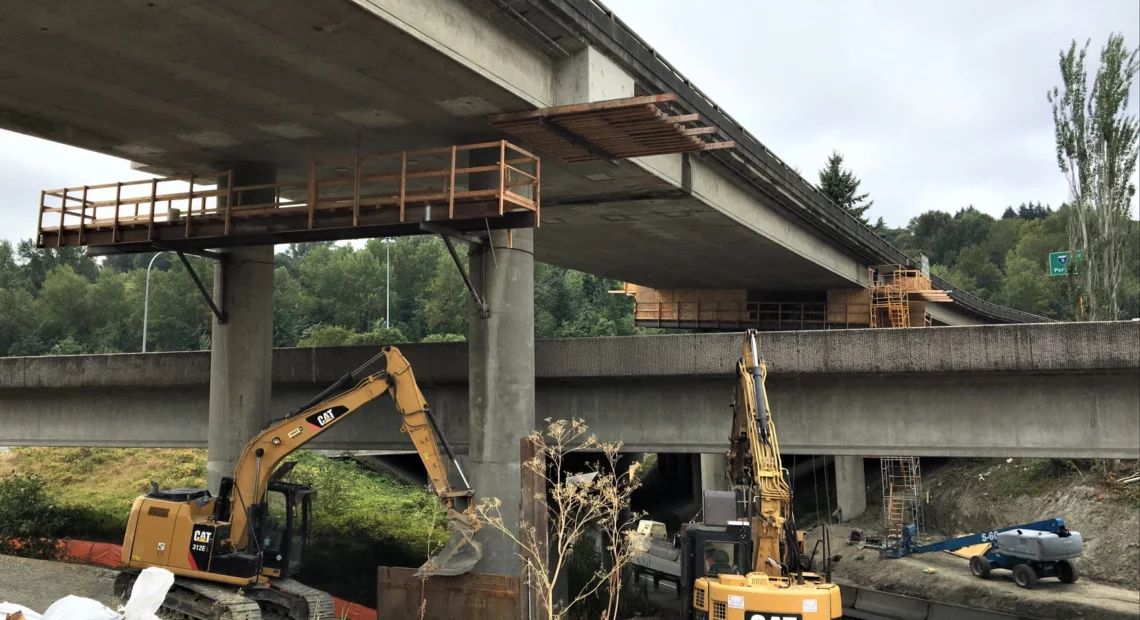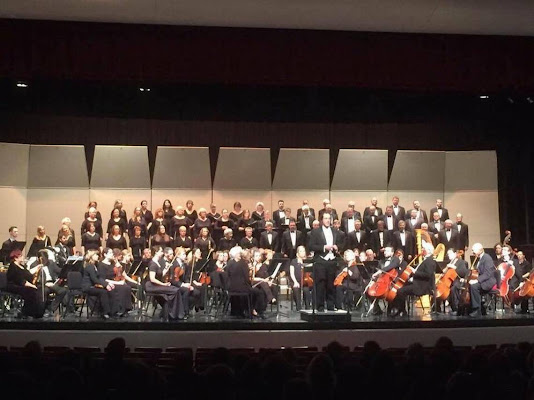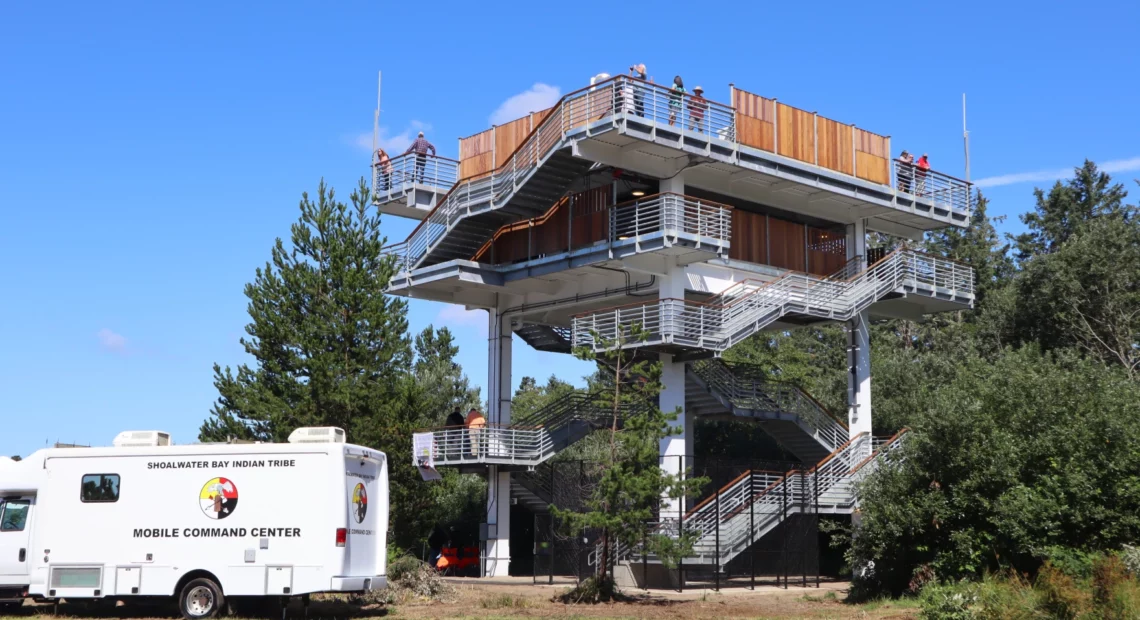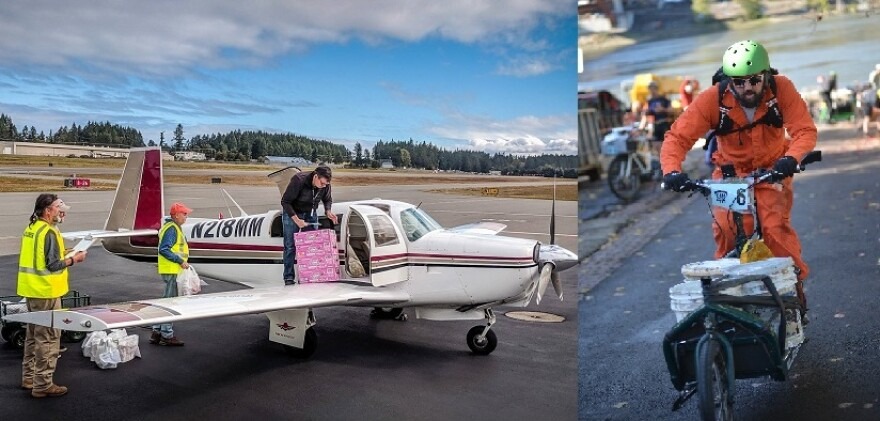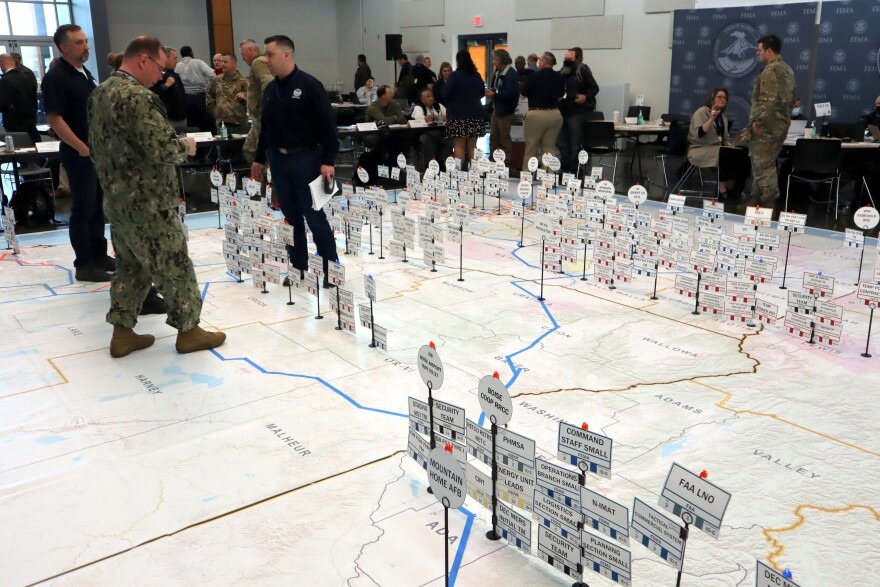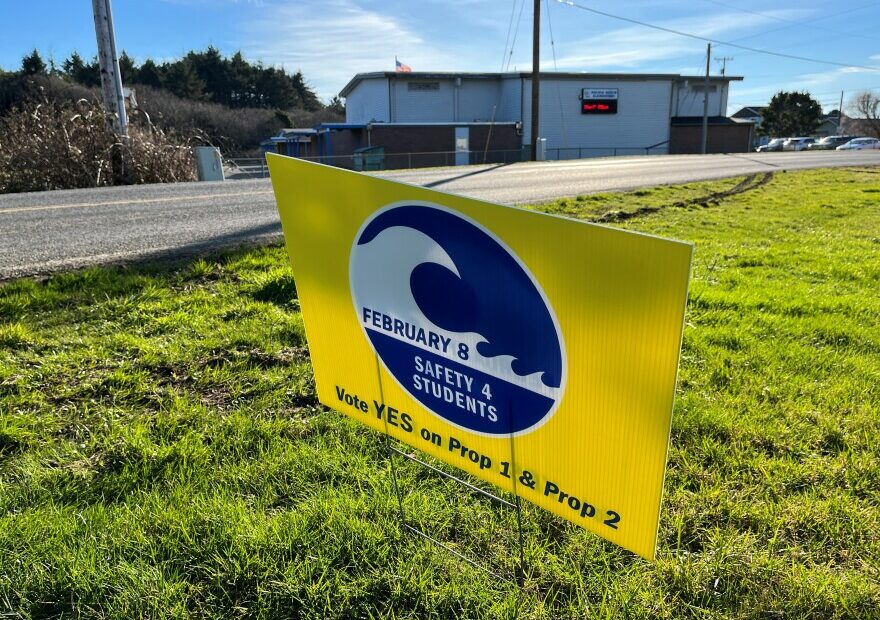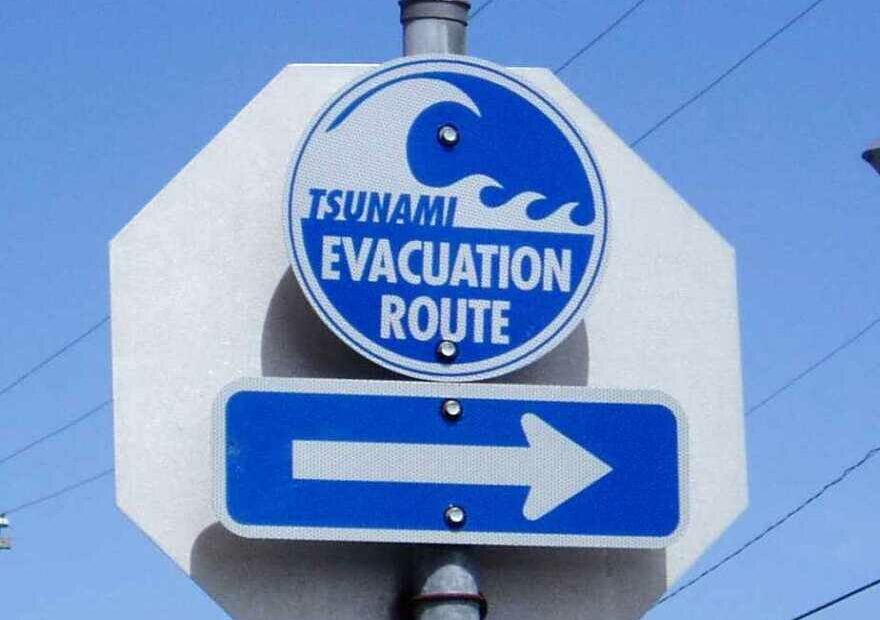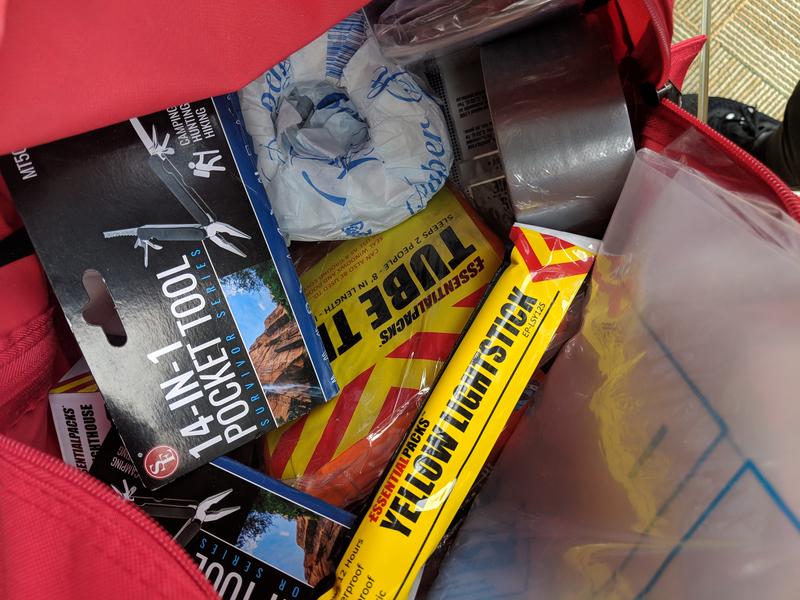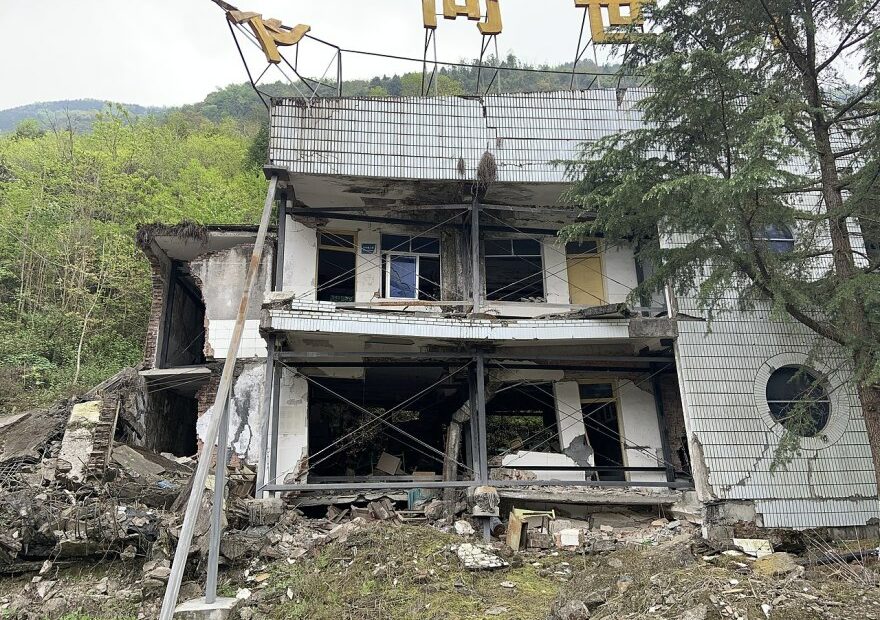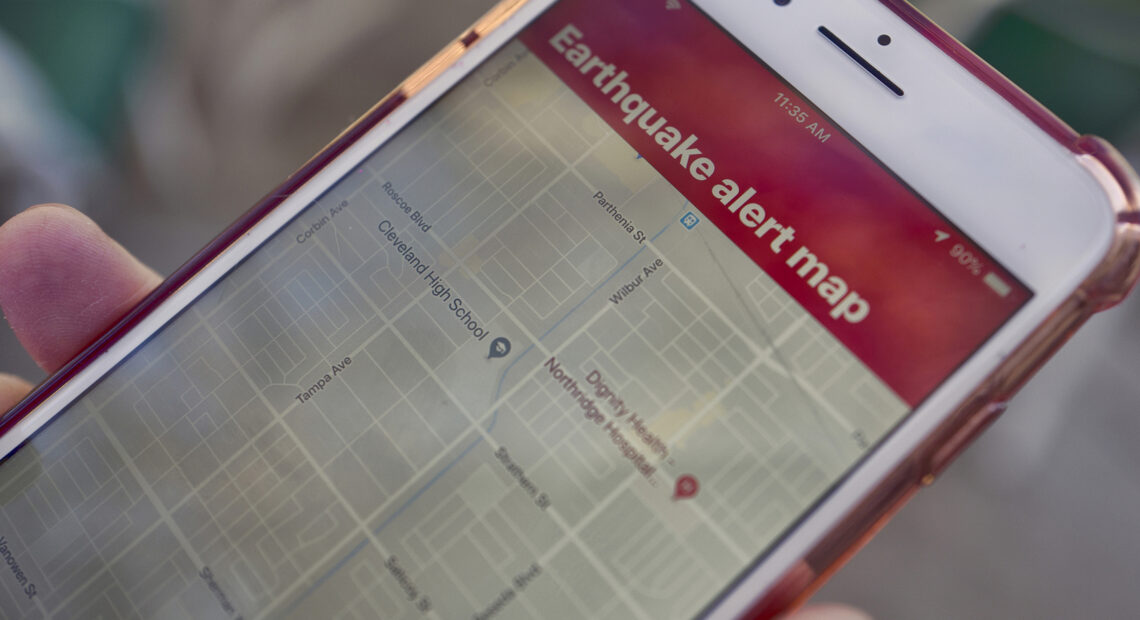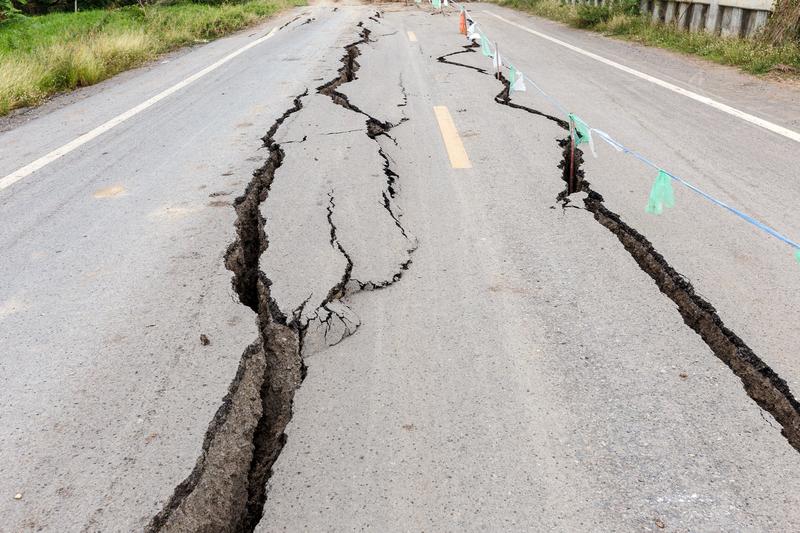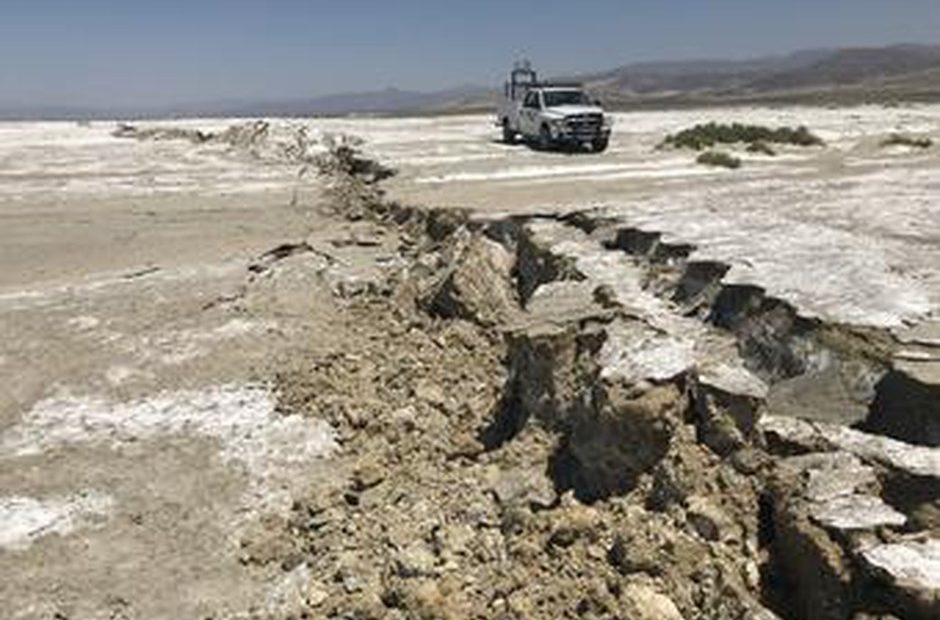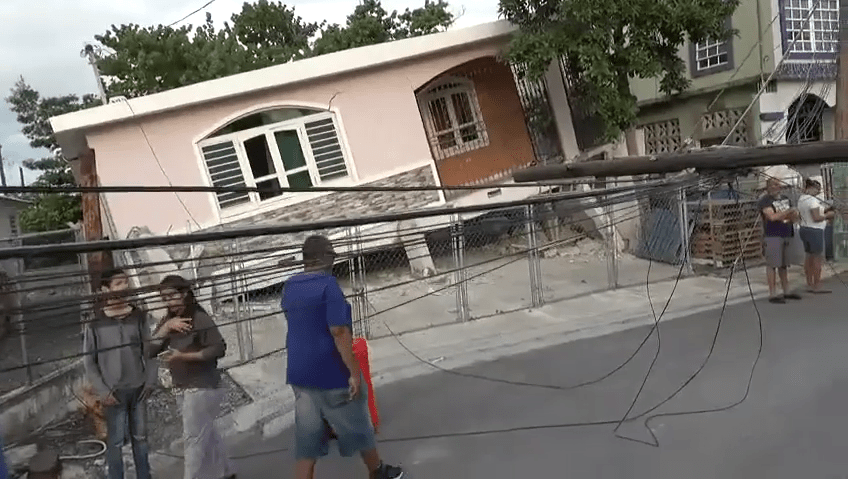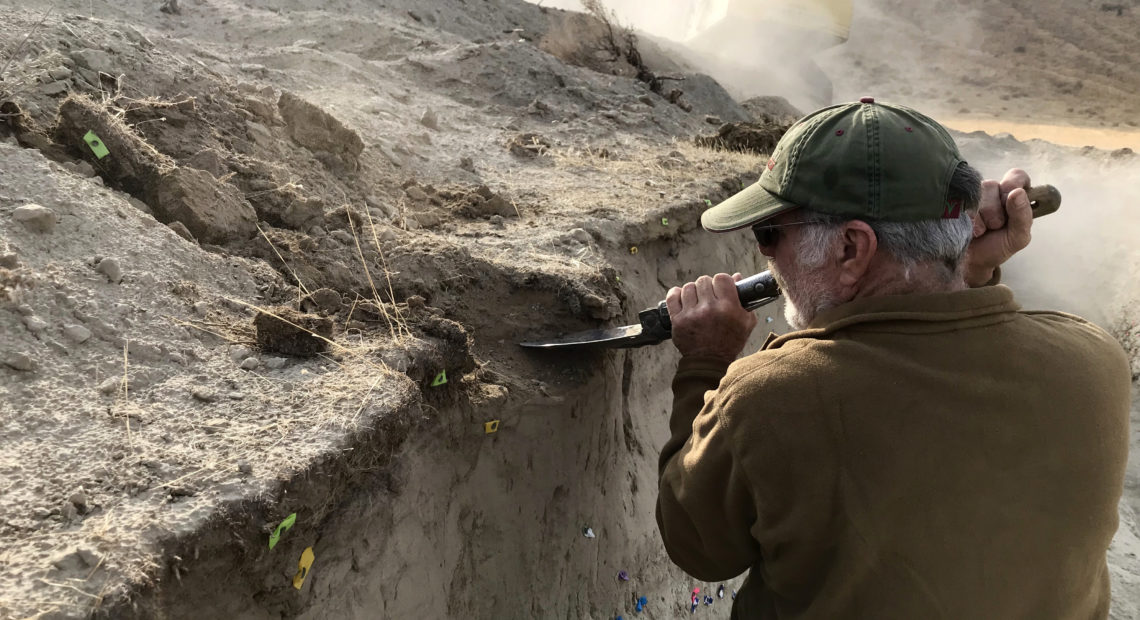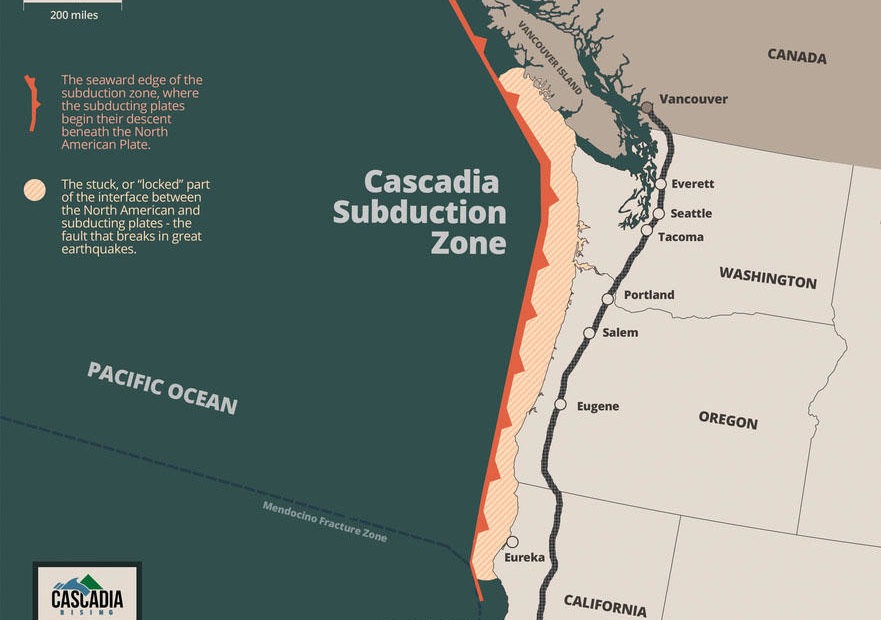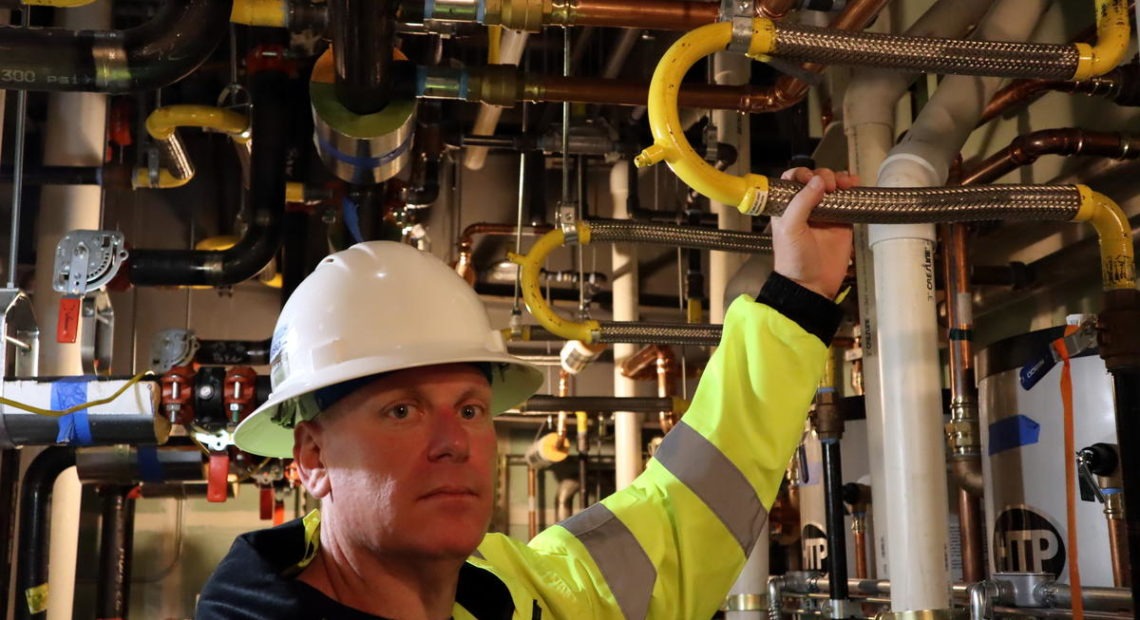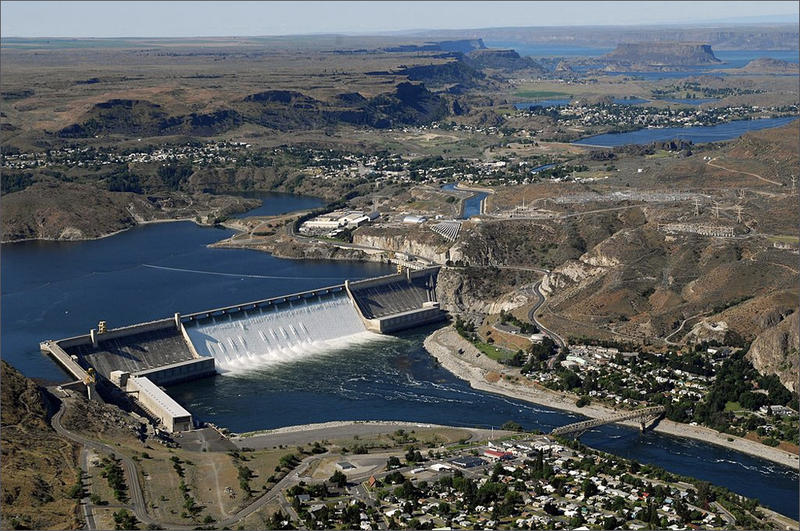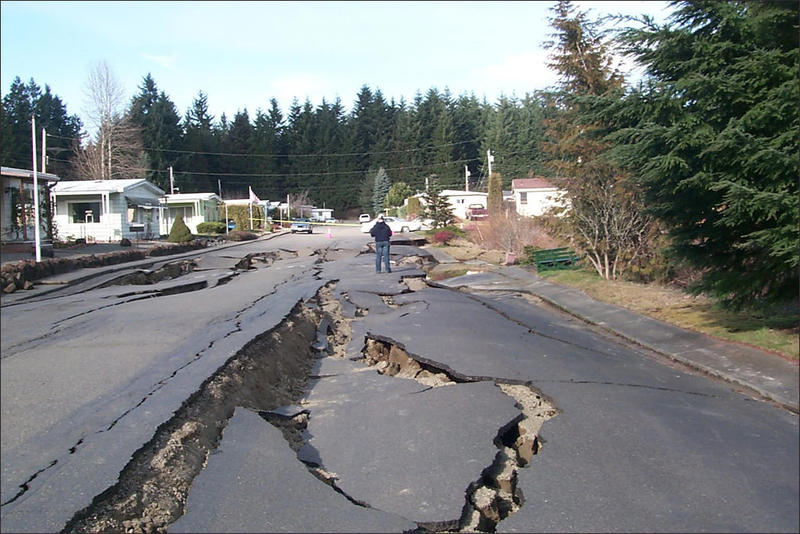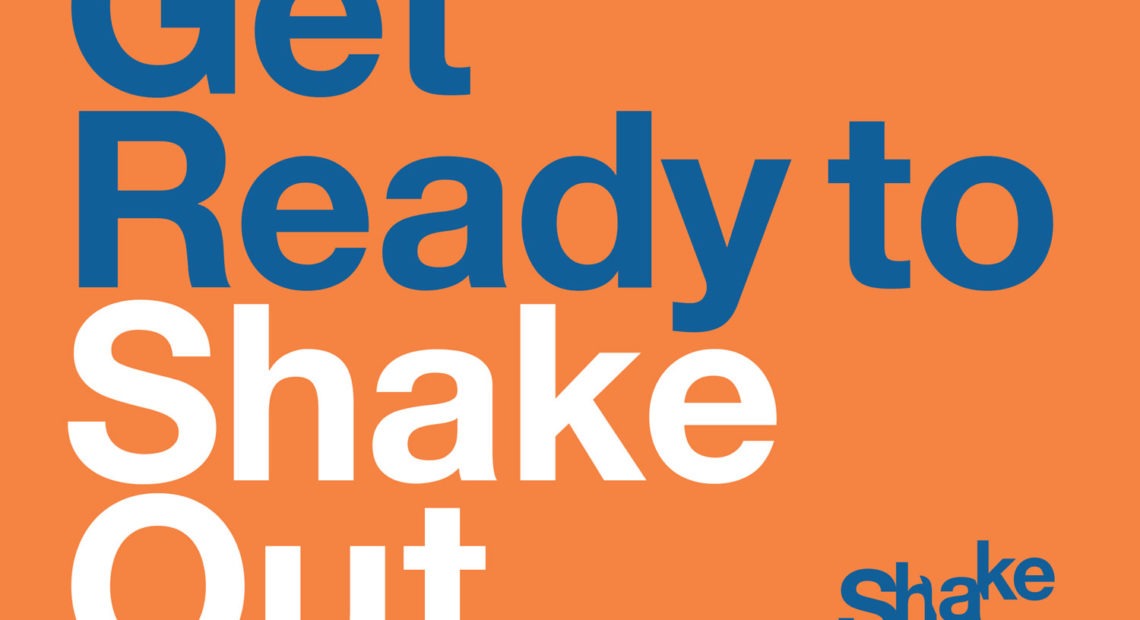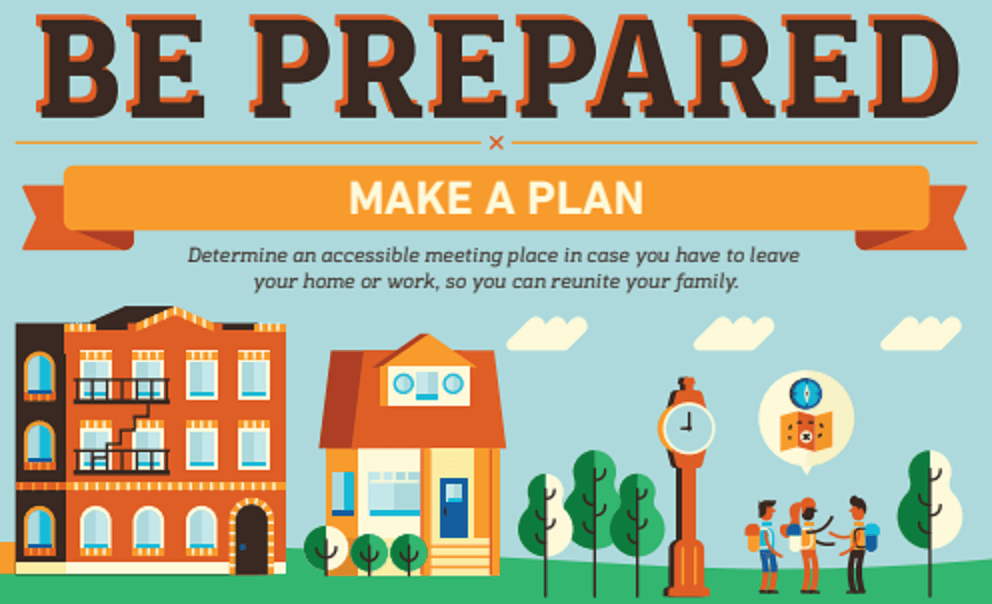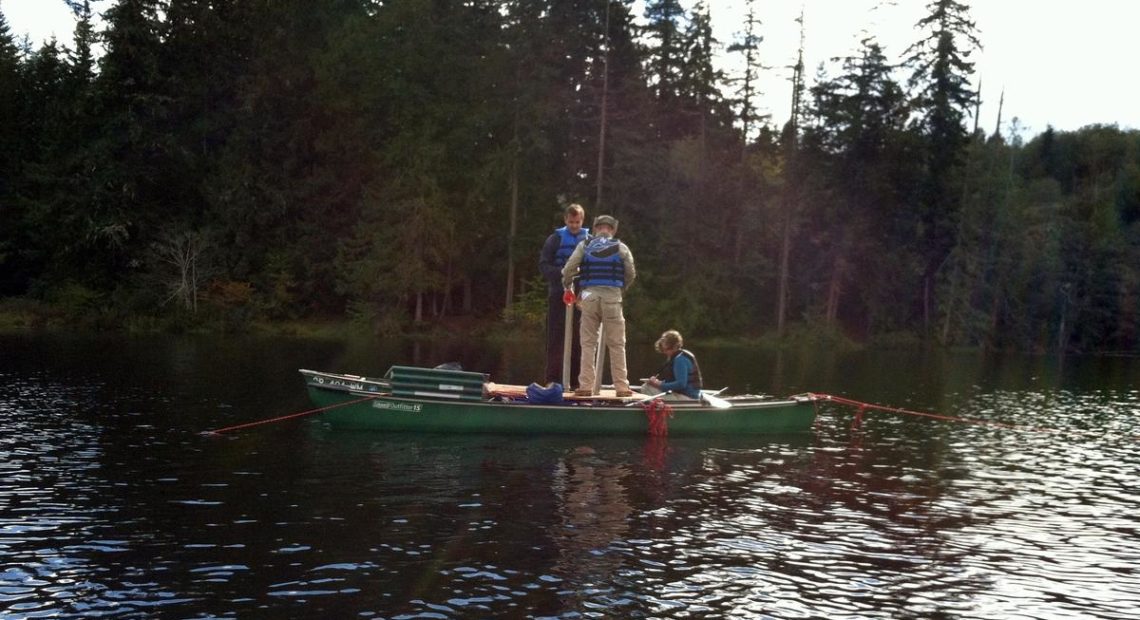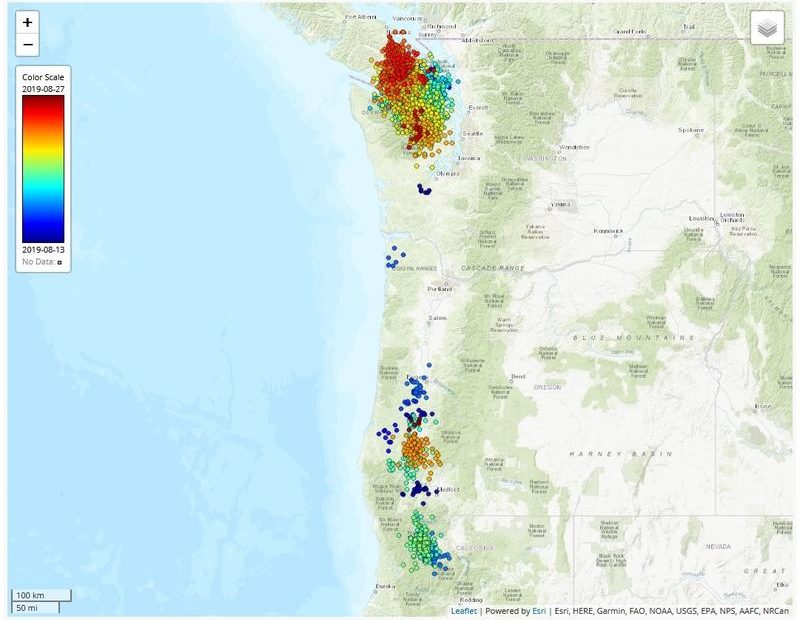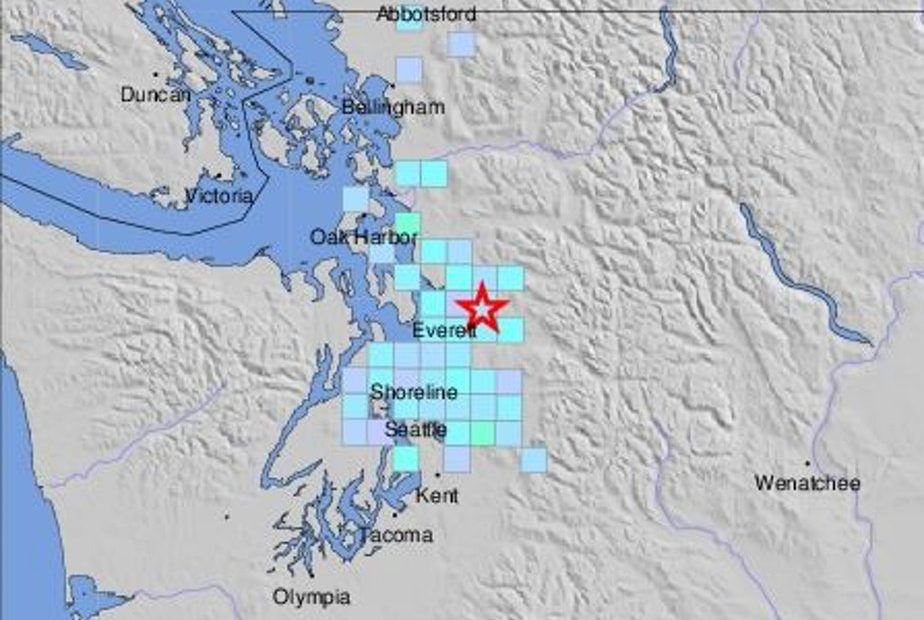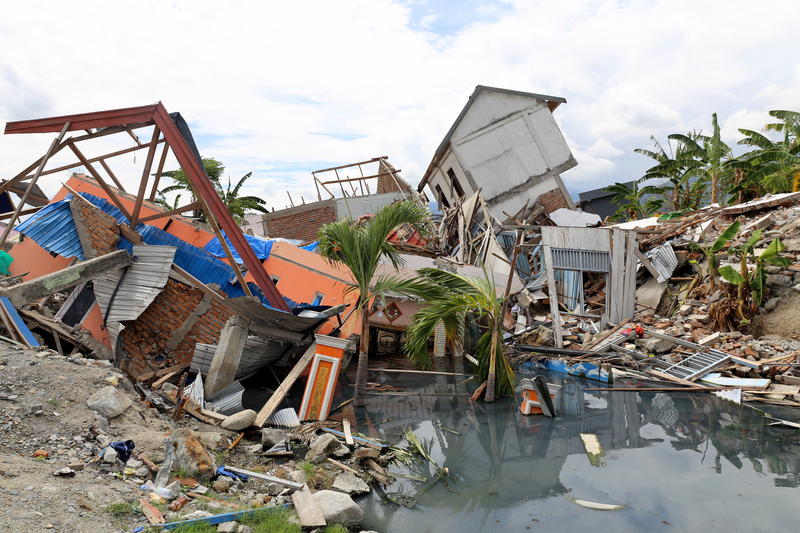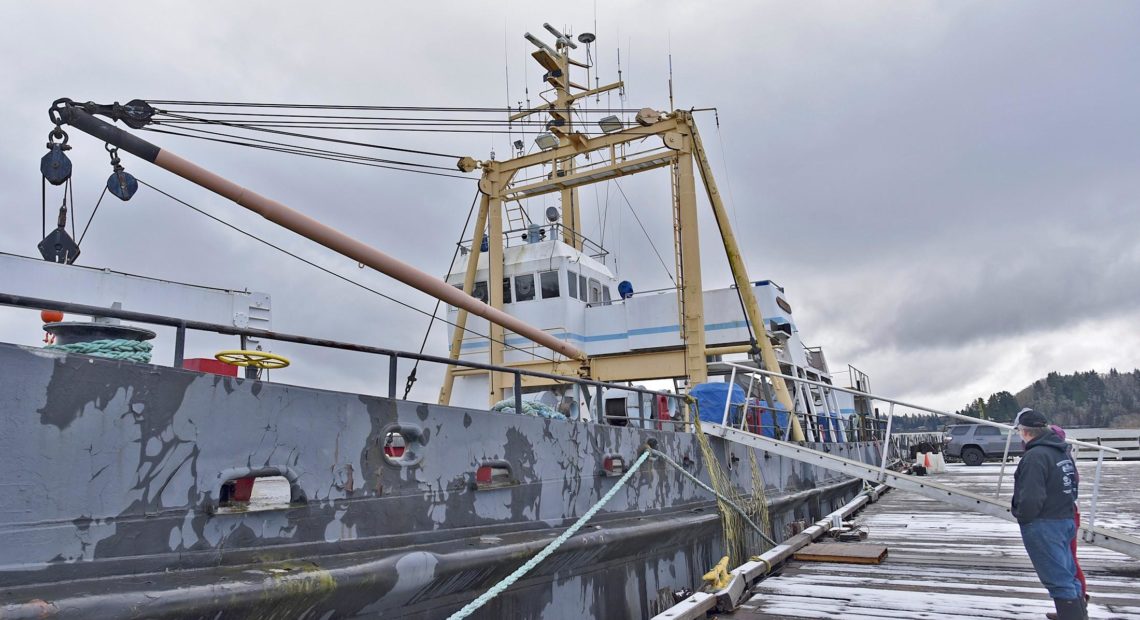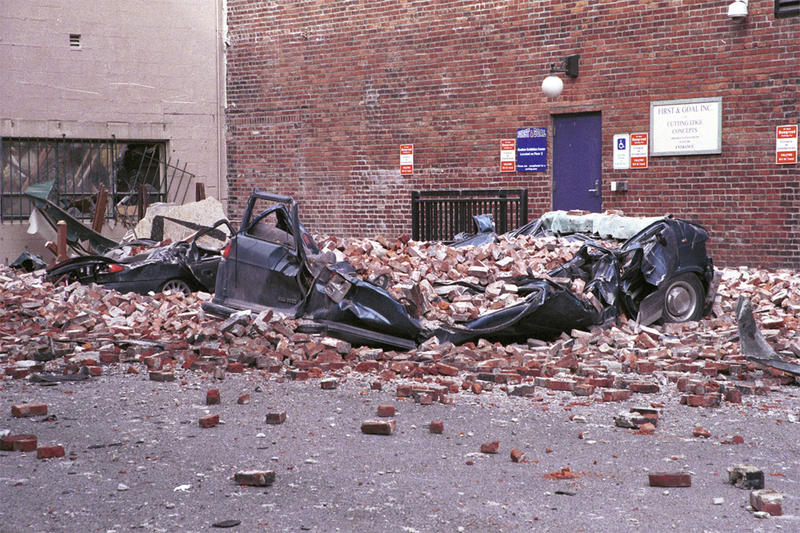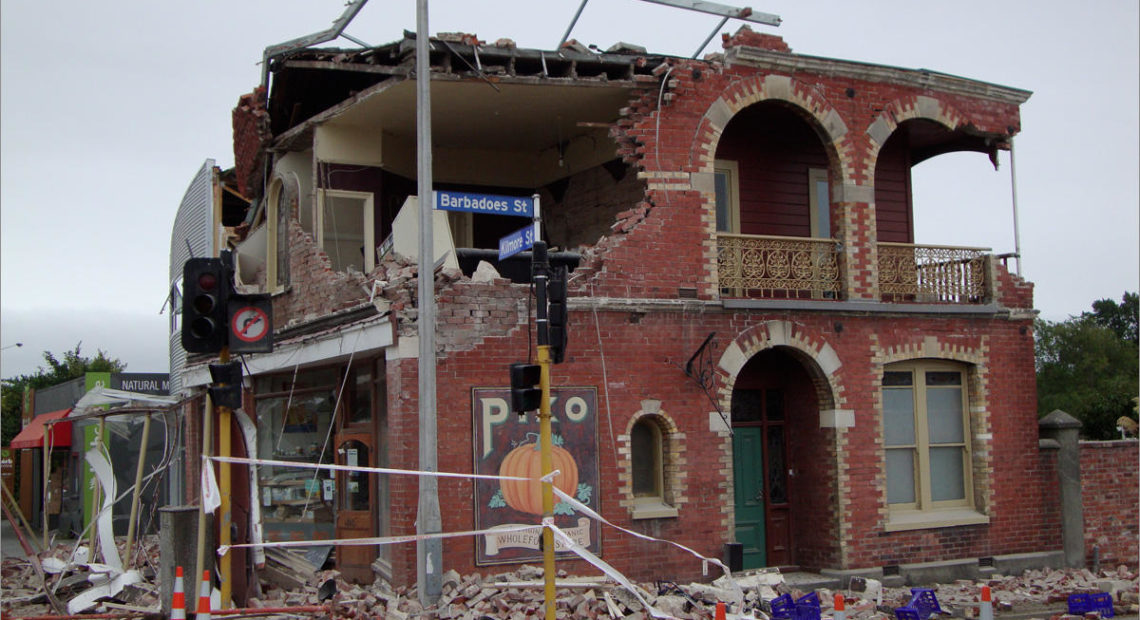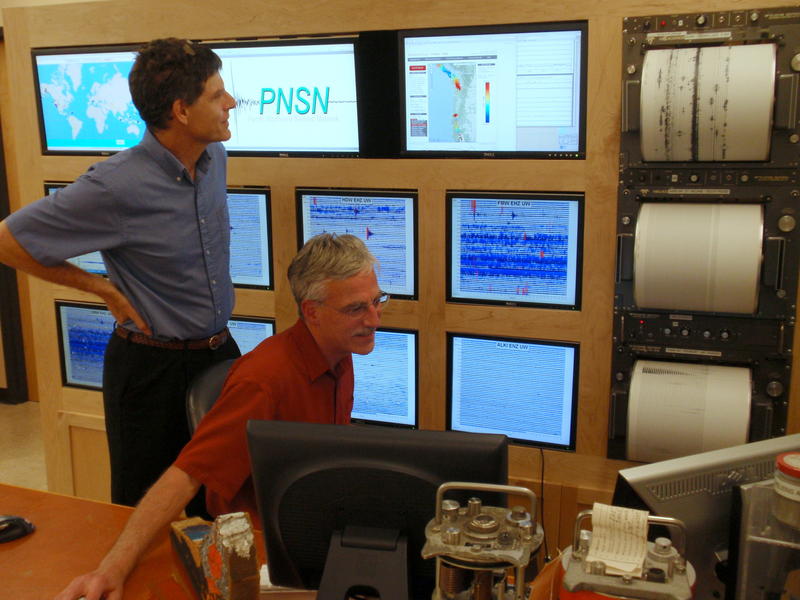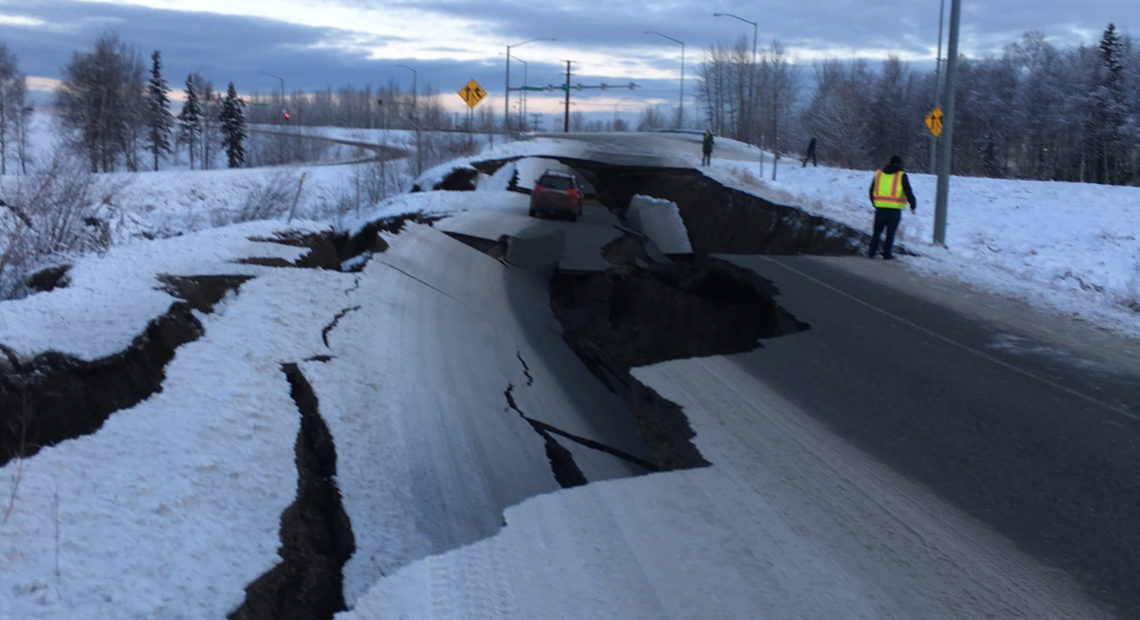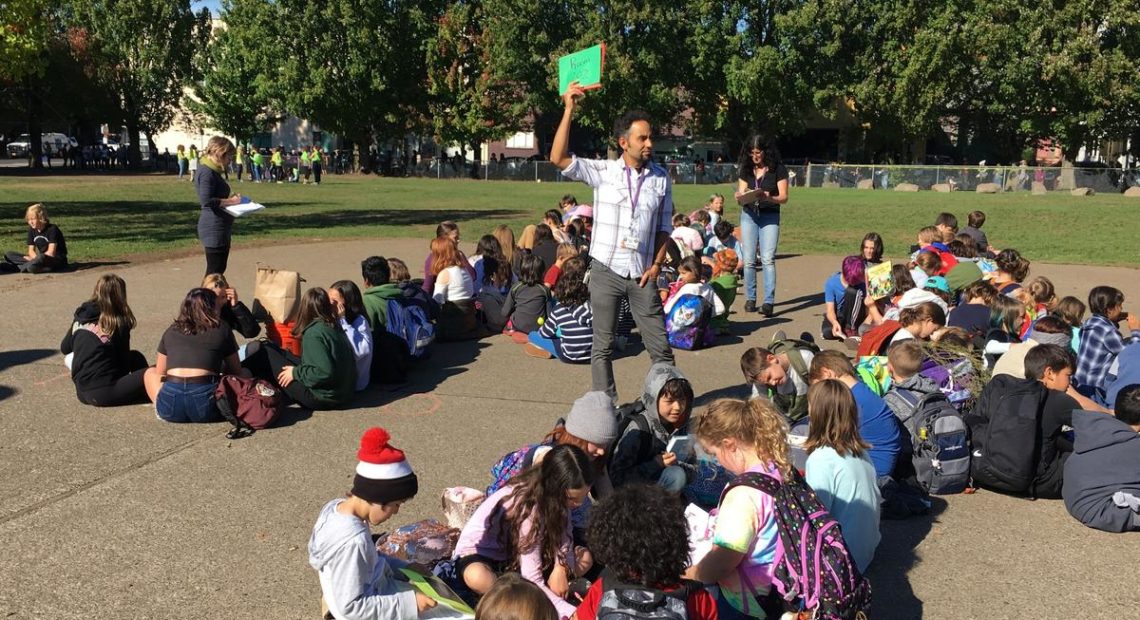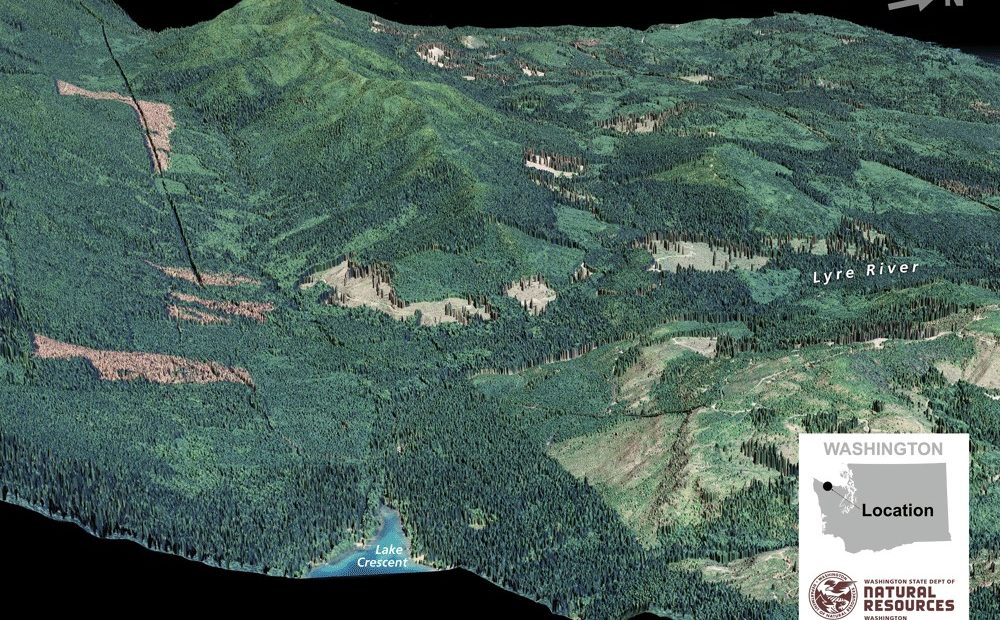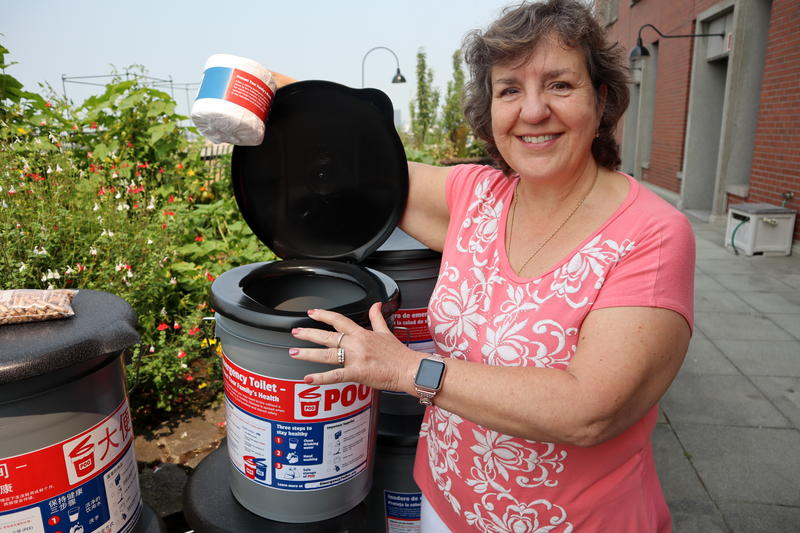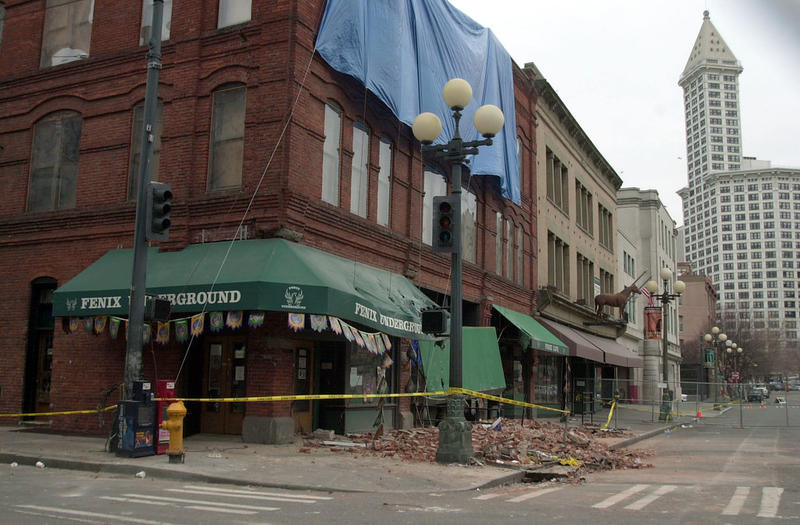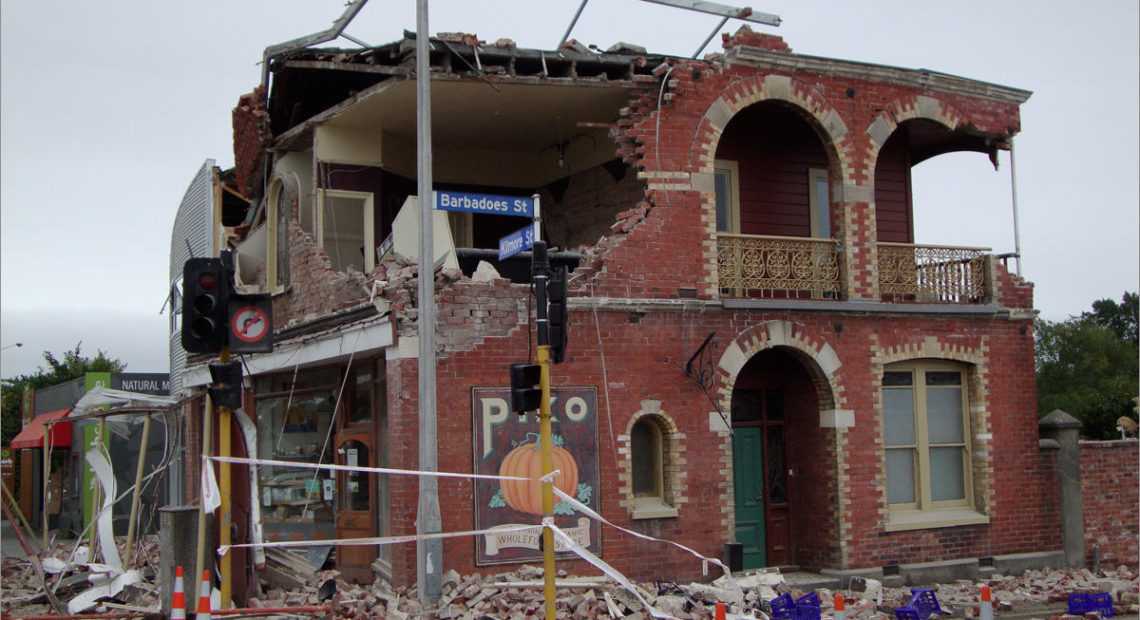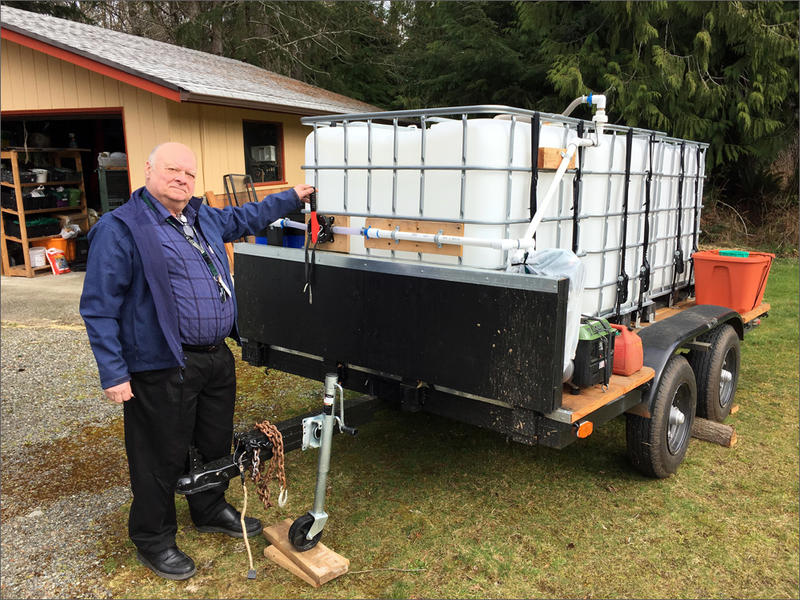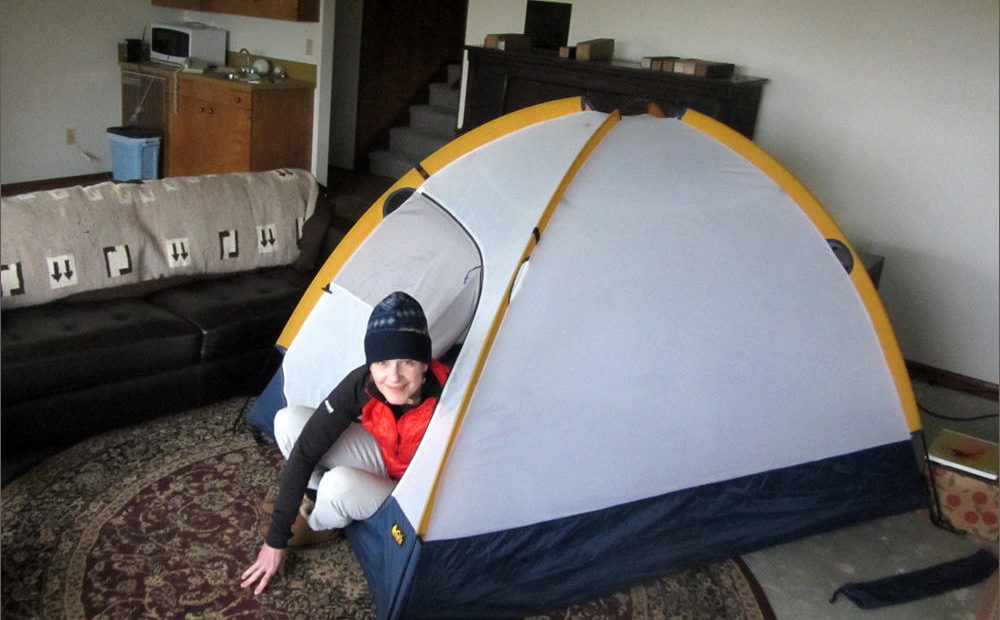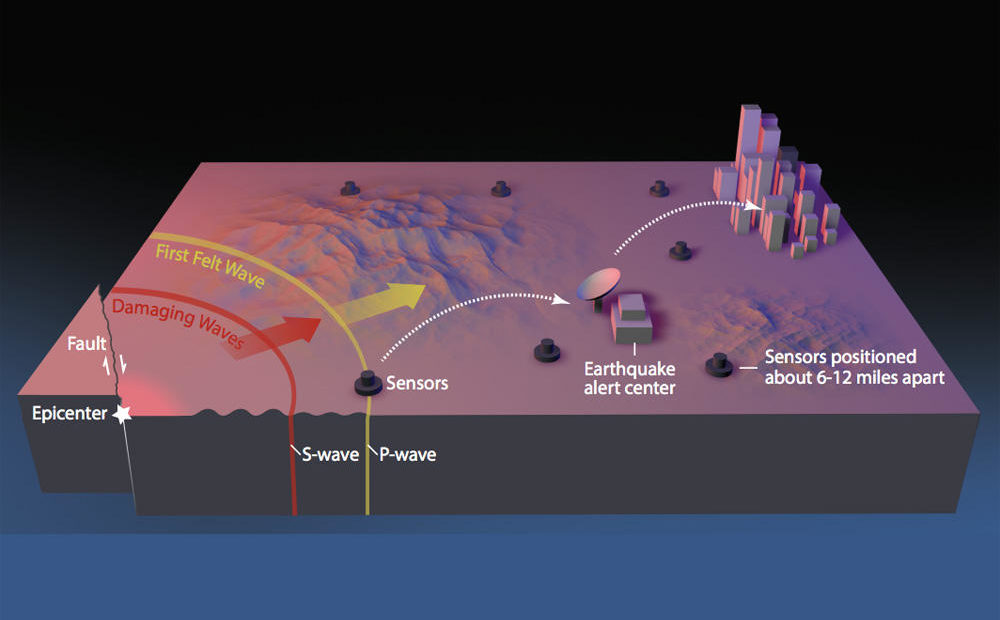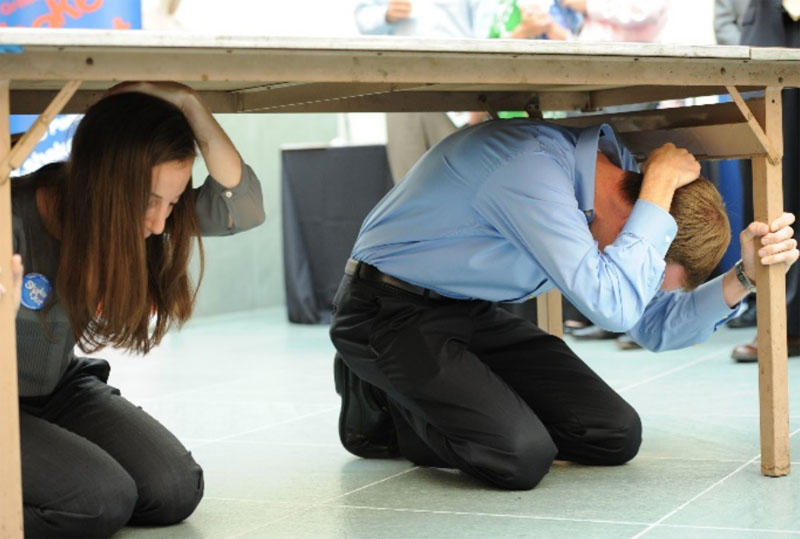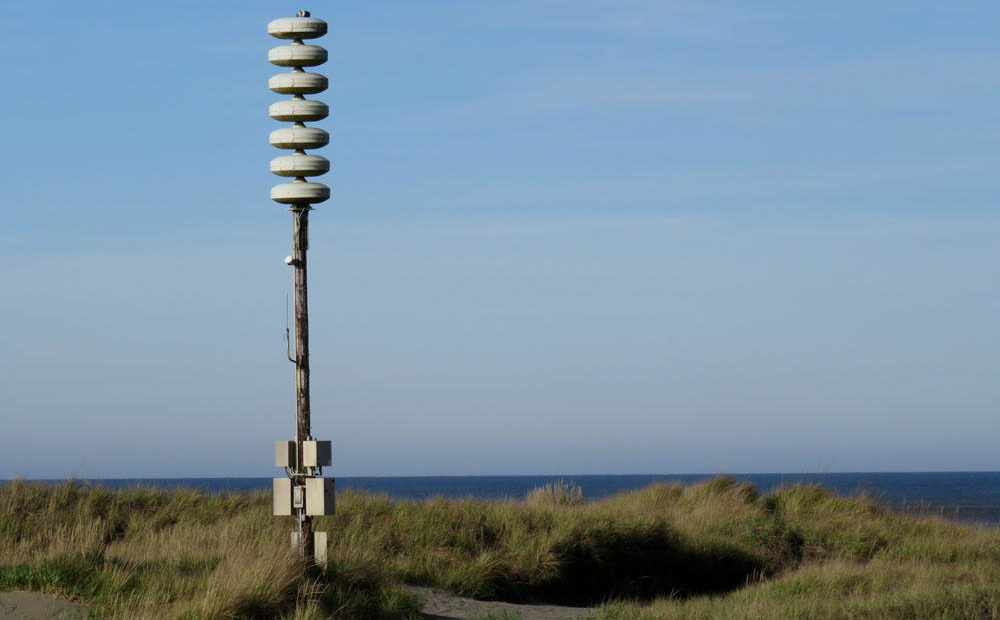New modeling by the University of Washington of the impacts of a major Cascadia earthquake offers a less dire picture of the aftermath of the so-called "Big One" — specifically when it comes to highway bridges.Read More
The Mid-Columbia Symphony will perform a public concert this September 24th in Pasco at 6:00 p.m. Photo from Mike Gonzalez reports website. Listen (Runtime 0:53) Read A symphonic concert will […]Read More
There is a new option to escape a tsunami if you’re on the southwest coast of Washington when the Big One strikes. The Shoalwater Bay Indian Tribe on Friday dedicated a 50-foot tall evacuation tower in Tokeland, Washington. Tribal leaders and the Federal Emergency Management Agency said the new tsunami refuge platform should be an example and inspiration for other Read More
A huge dress rehearsal for regional earthquake disaster relief was supposed to happen next week until the ongoing pandemic forced its cancellation. The scrubbed Cascadia Rising exercise would have involved more than 22,000 participants – chiefly U.S. soldiers, sailors and airmen as well as state, local and tribal emergency planners. Some smaller drills are going ahead this Read More
Close to 200 federal, state and tribal emergency preparedness planners gathered around a giant map of the Pacific Northwest this week to rehearse and critique the federal response plan for "The Big One." The three-day Cascadia earthquake discussion exercise partially replaced a much bigger planned dress rehearsal that was canceled due to the coronavirus pandemic.Read More
The January 15 volcanic eruption near Tonga was a stark reminder of the threats posed by tsunamis. That's long been a concern in the Pacific Northwest, where thousands of students go to school within reach of a large tsunami.Read More
If you are on the Pacific Northwest Coast when the next Cascadia megaquake strikes — also known as "The Big One"— the standard advice is to run for higher ground as soon as the shaking stops. But in some low-lying places such as Ocean Shores and Long Beach, Washington, and Warrenton and Seaside, Oregon, the closest high ground could be a long walk away over buckled roads.Read More
The state of Oregon has set an ambitious goal to prepare more families in earthquake country to be "two weeks ready" after a disaster. Washington's emergency management agency is also seeking more funding to prepare people in a similar way. Read More
Tens of thousands of public school students in Washington state returned to classes this month in school buildings judged to be at risk of collapse in a strong earthquake. A new report to the state Legislature prepared by state geologists and a structural engineering firm gave the lowest possible seismic safety rating to more than 90 percent of the school buildings Read More
Residents living on the West Coast don't know when the next earthquake will hit. But a new expansion of the U.S. earthquake early warning system gives 50 million people in California, Oregon — and now Washington — seconds to quickly get to safety whenever the next one hits.Read More
Smartphone users who opted in to a test of the West Coast earthquake early warning system got an early taste on Thursday of what is to come. Mobile phones from Seattle to Olympia blared with an alarm for imaginary incoming shaking. The earthquake warning system -- already operational in California -- will launch for the general public in Oregon on March 11 and statewide in Read More
The work by researchers at Portland State University and the University of Oregon, published in the Bulletin of the Seismological Society of America, offers a solution to a common problem that arises when using radiocarbon dating to determine the past activity of faults.Read More
"Today our icon remains in the memory of all," Guayanilla press official Glidden López Torres said on Facebook.Read More
Unlike the Cascadia Subduction Zone, the faults in eastern Washington are in the upper crust, (the outermost layer of the earth). That means they’re closer to the surface and to communities. They may not produce as large of an earthquake as the subduction zone off the coast, but the earthquakes these inland faults can produce could significantly damage infrastructure in Read More
Scientists found nine to eleven instances over roughly the last 3,000 years where a Cascadia earthquake seems to have triggered a San Andreas quake. The vast majority of great Cascadia quakes during that period have a correlation on the San Andreas Fault. Read More
The state of Oregon is pushing the community hospitals along the Oregon Coast to improve their earthquake resilience. This comes after a state report predicted none of them would be able to sustain operations after the feared Big One -- a magnitude 9 offshore Cascadia earthquake and tsunami.Read More
If you live at the foot of a dam – or downriver – you may wonder what could happen if an earthquake rumbled nearby. Dam managers say it’s something they’re constantly watching, but major shaking east of the Cascades shouldn’t cause too much damage. Read More
Emergency managers say a lot of the burden for eastern Washington and Inland Northwest communities will come from having to help house and provide services for people who will be displaced from western Washington following the aftermath of a potential large-scale earthquake. Read More
Information on earthquake drill set for October 17, 2019 at 10:17am. Also how to prepare emergency kits. Read More
The Earthquake Preparedness Roadshow will start in Walla Walla on Sept. 29 with stops during the week in Pullman, Spokane, Grant County, Toppenish and Richland.Read More
Multiple teams of earthquake researchers are looking in what may seem like an unlikely place to figure out how strongly the Northwest shook
during great quakes in the past.They're poking around the bottom of lakes in Western Washington and Oregon. It turns out lakes preserve a nifty earthquake record that can shed light on the next "Really Big One."Read More
The Pacific Northwest Seismic Network has detected more than 4,500 tremors over the past two weeks deep beneath the Olympic Peninsula and southern Vancouver Island and from another swarm stretching from Eugene to the Siskiyou Mountains.Read More
A 4.6 magnitude earthquake shook the Puget Sound region early Friday. The quake was centered in Monroe, east of Everett, according to the U.S. Geological Survey's earthquake mapping system.Read More
Last September, a magnitude 7.5 earthquake followed by a tsunami devastated a region of Indonesia, killing more than 4,300 people. Two Oregon State and University of Washington professors who surveyed the aftermath say the far-away disaster should elevate attention to quake-induced landslide risks here at home in the Pacific Northwest.Read More
A former Navy landing ship commissioned during World War II could come to the rescue when a big Cascadia earthquake hits someday. A group based in Astoria, Oregon, envisions a new role in disaster relief for the storied vessel Salvage Chief.Read More
The State of Washington has completed its first statewide inventory of buildings prone to crumble or collapse in an earthquake. The bottom line: There are an awful lot of unreinforced, old brick or stone buildings that could be dangerous — a similar number to estimates in Oregon.Read More
Thousands of old brick, stone and concrete buildings in the Pacific Northwest could crumble in the next strong earthquake. To face that challenge, measures pending in the Oregon and Washington legislatures would set up grant programs to help owners of dangerous buildings make seismic safety upgrades.Read More
Most people in the Pacific Northwest know we live in earthquake country. A new analysis published this week, however, notes that major quakes in the region have gone on a puzzling hiatus over the last decade.Read More
The earthquake, with its epicenter just a few miles off Anchorage, has been followed by a series of aftershocks. Read More
It's a sad fact of life that K-12 students must practice for calamities such as earthquakes, fires, lockdowns or active shooters. Now a few public schools in the region are roping in parents and guardians to practice for the aftermath.Read More
One way to predict the risk of earthquakes in the Pacific Northwest is to look at how often they occurred in the past – and, for several groups of geologists, delving into the fault lines themselves. The evidence lies in trenches the scientists cut across fault lines in northwest Oregon and on the north Olympic Peninsula.Read More
It's not something we typically discuss in polite company, but disaster planners say that when water and sewage service fails, finding a place to poop is a big deal.Read More
After years of debate, the Portland City Council has taken a big step toward making the city’s old brick buildings more earthquake-safe. The Council voted unanimously June 13 for a resolution that would require owners of unreinforced masonry buildings to retrofit their properties. Those buildings, nicknamed URM's, are at high risk of collapse in an earthquake.Read More
Portland may become the first city in the Pacific Northwest to require all owners of old brick buildings to make earthquake safety upgrades. But being on the leading edge is not a comfortable place.Read More
Statewide disaster preparedness messaging aimed at households and businesses calls for one gallon per person per day as the goal for emergency drinking water. Scooping water out of a creek or pond is dicey because of the widespread giardia parasite, aka "beaver fever." So inventive residents on Washington's Olympic Peninsula got creative.Read More
When The Big One happens, emergency planners and geologists expect the vast majority of us will survive. But a magnitude 9 rupture on the Cascadia earthquake fault will likely cut electricity, running water and sewer for weeks—or even months afterwards.Read More
An earthquake early warning system under development for the West Coast gets a major boost in the new federal budget that President Donald Trump signed into law Friday.Read More
No one can say when exactly the next Cascadia megaquake will strike other than there's a fair chance it'll happen in our lifetimes. A new study of likely earthquake impacts in the Greater Portland region finds the exact timing and season make a big difference when it comes to casualties and damage.Read More
Planned student walkouts this week bring attention to reducing the threat of school shootings. One group of Northwest parents is pushing schools to prepare better for another kind of disaster: a major earthquake. Read More
A 7.9 earthquake off the coast of Alaska triggered a tsunami watch that stretched from Washington to California early Tuesday morning. But many coastal residents slumbered right through it.Read More
The report cards are in and it’s not pretty if you worry about how you’ll fare after a magnitude 9 Cascadia megaquake and tsunami. Washington and Oregon’s emergency management divisions […]Read More

